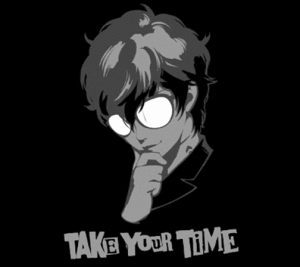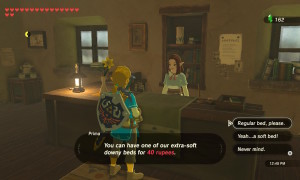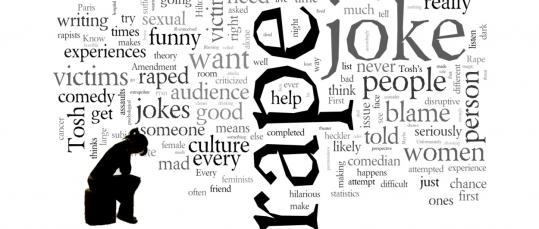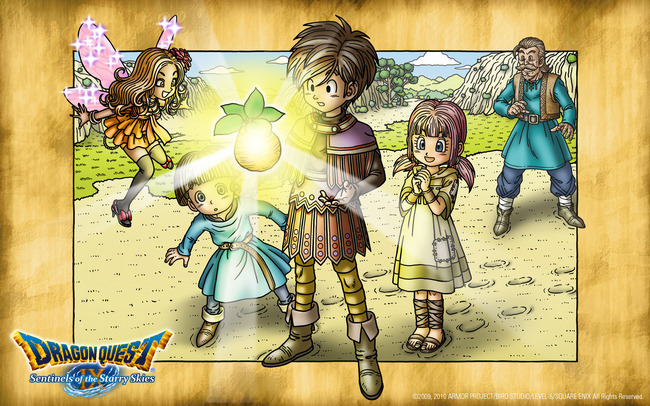I have to admit that in the last year or so I have played several games that have really made me question the existence of a time sucking black hole…but not in a bad way. These games have made me lose track of time as I got sucked into their worlds and probably at times when I most needed some relief from the actual, tangible world around me where things seemed to be quickly devolving into a trash fire. I find myself turning to games even when there seems that there is no time to be had with my day job, homeschooling, and activist/volunteer work. I almost feel that I have to make time to play games for a sense of normalcy. A space within which I have control over what goes on around me and my actions can bring me a definite sense of calm.
 In the last couple of weeks as I found myself sucked into battling monsters in Hyrule (because Hyrule needs me!) and then being asked to specifically “Take [my] time” in Persona 5. And in asking me to take my time and consider the time at which things were happening or being done has done a lot to make me more cognizant of the time and the passage of time while I am playing the game.
In the last couple of weeks as I found myself sucked into battling monsters in Hyrule (because Hyrule needs me!) and then being asked to specifically “Take [my] time” in Persona 5. And in asking me to take my time and consider the time at which things were happening or being done has done a lot to make me more cognizant of the time and the passage of time while I am playing the game.
In the article “Effects of Video Game Play Versus Meditation”, Jayne Gackenbach et al make the assertion that
When gamers are fully immersed in the virtual reality of a video game, they are experiencing what is called presence, defined as a felt sense of ‘being there’ in the moment. Presence may be comparable to absorption, a psychological construct that describes an alternative state of consciousness in waking reality (Preston, 1998, 2007). When gamers are absorbed and experience presence, they may also experience flow, where action and awareness merge, a high sense of control and temporal distortions occur, and the activity is intrinsically rewarding (Csikszentmihalyi, 1990). Gamers’ experiences, in turn, may be analogous to the mindfulness states found during deep meditative states (Gackenbach & Bown, 2011).
For Gackenbach game immersion and the meditative state that one can enter while playing games can be described as a kind of flow state. And as I have written about before, that flow state that Katherine Isbister describes as something that game developers desire for their players because it makes the game itself disappear by making the game become a part of the player’s reality.
Isbister takes the notion of flow and immersion a step further and moves it into the notion of player emotion. She writes
When players discuss the emotions they feel when playing games, much of their vocabulary relates to flow (curiosity, excitement, challenge, elation, or triumph) or the lack thereof (frustration, confusion, discouragement). Thus, flow theory offers a useful lens for understanding the unique emotional power of games compared to other media.
It is this state of flow (as described by both Gackenbach and Isbister) that I suggest is what pulls me completely into games like Stardew Valley and and Legend of Zelda: Breath of the Wild. It’s the music, the thunk of the axe, the soft fall of footsteps as I run across the map (admittedly a much shorter run in Stardew Valley), and all the aspects that come together to put me an almost trancelike state. And even though you experience the passage of time in both games and both have an actual clock on the HUD at all times with different things happening at different times, there is something different about the passage of time in a game like Persona 5.
 Time passes more vaguely, in Persona 5 and in Persona 4 Golden which I played almost religiously when it launched back in 2012 (?? has it really been that long?) with the HUD displaying the date and the time of day (ie Daytime, Evening…) and things happen at certain times of day and the flow of time during the day (no pun intended) does allow me to get lost in the game temporarily, until evening. In the evening I am forcibly returned to my room where my actions are limited (most times) and the only real option in the game is to go to bed as a mean for advancing the narrative. If you try to leave your room via the stairs (is your bedroom upstairs in all Persona games?) you are stopped and reminded that you really should be going to bed and (no spoilers) the adult in your life reminds you that lack of sleep can be detrimental to your body. The flow is spoiled by having the choice removed from you. You can’t choose to roll into an inn and shell out your rupees for a regular or soft bed based on the narrative that you are weaving for yourself. You can weigh your options and decide how long I should stay in the dungeons, forest, or town before trying to book it home before you pass out and become a victim of bandits or the local WalMart knock offs.
Time passes more vaguely, in Persona 5 and in Persona 4 Golden which I played almost religiously when it launched back in 2012 (?? has it really been that long?) with the HUD displaying the date and the time of day (ie Daytime, Evening…) and things happen at certain times of day and the flow of time during the day (no pun intended) does allow me to get lost in the game temporarily, until evening. In the evening I am forcibly returned to my room where my actions are limited (most times) and the only real option in the game is to go to bed as a mean for advancing the narrative. If you try to leave your room via the stairs (is your bedroom upstairs in all Persona games?) you are stopped and reminded that you really should be going to bed and (no spoilers) the adult in your life reminds you that lack of sleep can be detrimental to your body. The flow is spoiled by having the choice removed from you. You can’t choose to roll into an inn and shell out your rupees for a regular or soft bed based on the narrative that you are weaving for yourself. You can weigh your options and decide how long I should stay in the dungeons, forest, or town before trying to book it home before you pass out and become a victim of bandits or the local WalMart knock offs.
It is that removal of choice that jars me back into reality and breaks my flow. It’s not the fact that I have to go to bed. I have to go to bed in lots of games, but I want to do it when I am good and damned ready.




